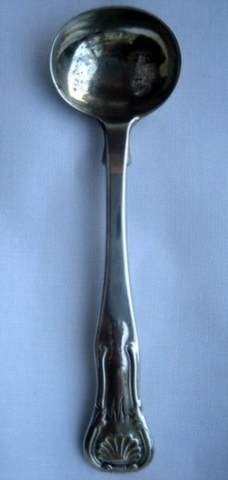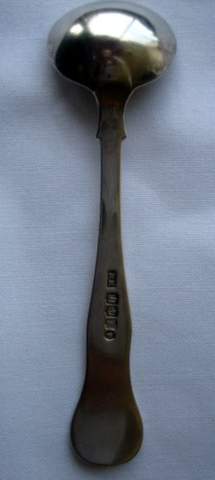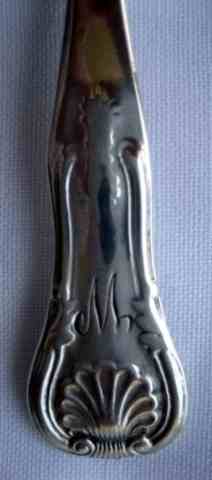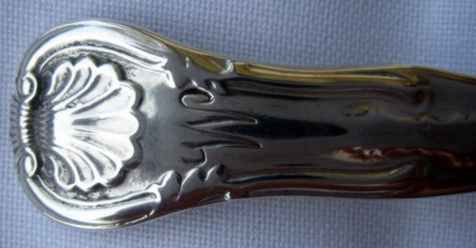 ASSOCIATION OF SMALL COLLECTORS OF ANTIQUE SILVER
ASSOCIATION OF SMALL COLLECTORS OF ANTIQUE SILVERASCAS
| Members' Window # 47 |
|
click on images to enlargeA SCOTTISH PROVINCIAL SALT SPOONPeculiar to Scotland, the King’s Pattern is only struck on the front, the reverse side being plain. This Victorian age salt spoon bears the hallmarks: three towered castle and thistle for Edinburgh (note 1), date letter "L" for the year 1842 and queen Victoria’s head facing left for the duty mark. Maker’s mark: RK in a rectangle for Robert Keay II. The spoon also carries the initial W on the handle and its oval bowl shows traces of gilding. The Keay were a family of silversmiths active in Perth from late 18th century to mid 19th century. Robert Keay I (the elder) is earliest mentioned in 1791 and his latest mention (as RK mark) is in 1825. Since 1812 he used a rectangular mark with RK while in 1836 is registered in Edinburgh another rectangular mark with "R &RK" in partnership with his nephew Robert Keay II (the younger). When Robert Keay I ceased his activity the punch RK continued to be used by Robert Keay II (earliest mention 1839, latest mention 1856) (note 2) - Two factors signed the definitive decline of silversmithing activity in Perth (note 3): The 1836 Act requiring all Scottish silver to be hallmarked in the Assay Offices of Glasgow or Edinburgh. This had the effect of concentrating production in these cities. - The diffusion from the 1850s of the new cheaper process of electro-plating silver that covered most of the less expensive market request. Length of the spoon 99 mm Width of the bowl 22 mm Weight 12 g NOTES
|
Robert Massart
|




